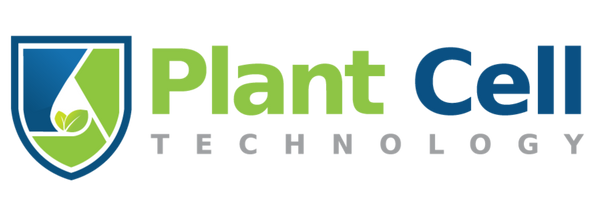
New Technical Agar Vs Supreme Agar
As a content and community manager, I leverage my expertise in plant biotechnology, passion for tissue culture, and writing skills to create compelling articles, simplifying intricate scientific concepts, and address your inquiries. As a dedicated science communicator, I strive to spark curiosity and foster a love for science in my audience.


Introduction
What’s the secret element that supports and holds plants in vitro?
Not sure? It’s the solidifying agent.
Solidifying agents are chemicals that when added to the media, solidify as the media cools down. These substances or chemicals are also known as gelling agents. They provide firmness when added to the tissue culture media.
An interesting thing about these gelling agents is that they can revert to their liquid state when heated.
Gellan gum and agar are the two most commonly used solidifying agents in tissue culture applications.
Each gelling agent operates optimally within a specific pH and temperature range. Thus, the purpose of the experiment and components of the media must be considered while choosing one for your tissue culture game.
Let’s understand this with an example of Nepenthes.
Nepenthes tissue culture using seeds as an explant requires 1/4th of MS media, which demands using of agar rather than gellan gum.
Why?
When seeds are surface sterilized using hydrogen peroxide, the chemical can turn gellan gum back into liquid. Additionally, agar solidifies better in the ¼ strength MS medium than gellan gum, which may not solidify or become softer due to reduced calcium content.
NOTE: This case differs based on the chemicals you use in your tissue culture process. Thus, it’s always better to be aware of each component you use in tissue culture media and their role in it.
In the market, you will even find different types of gelling agents, such as supreme agar and technical agar, which both fall into the agar category.
Because agar is one of the most widely used gelling agents in tissue culture, we have dedicated this article to distinguishing between these two market products.

A Glimpse On Gelling Agents
You know that in vitro plants do not grow in soil. When plants are produced in a controlled lab environment, the environment must be completely sterile and clean. And because there’s no soil (yes, no soil at all because we don’t want our plant tissues to be attacked by billions of microbes residing in soil—well, not all of them are bad guys, and we will talk about this in our future blogs), you need a substance that can replace soil.
And that’s where gelling agents come in!
In addition to supporting in vitro plants, gelling agents also supply nutrients to plants.
Agar, derived from seaweeds, is a polysaccharide known for its ability to bind with water, which increases with concentration. However, excessively high agar concentrations can negatively impact in vitro growth by rendering the medium too hard for nutrient diffusion into tissues.
Typically, it’s added to the medium in concentrations of 0.5%–1% (6–8 g/L) and is preferred over alternative gelling agents like agarose and phytagel. This is mainly due to its inert nature, as it neither interacts with media components nor is broken down by plant enzymes.
Gellan gum, a water-soluble alternative to agar discovered in 1978, offers several advantages for plant tissue culture. It forms clearer gels, facilitating root observation, contamination detection, and microscopic analysis.
Notably, gellan gum withstands higher temperatures (up to 120°C) and requires less for equivalent gel strength. However, long-term cultures may experience liquefaction due to pH changes.
Gellan gum is used at 2-4 g/L, and it minimally alters media composition compared to agar, which can impact specific elements and contain phenolic impurities.

Technical Agar Vs. Supreme Agar
Agar, a complex polysaccharide derived from the cell walls of red algae (Gelidium spp. and Gracilaria spp.), is commonly used as a solidifying agent in microbiological and plant tissue culture media. It consists primarily of agarose, a linear polysaccharide, and agaropectin, a heterogeneous mixture of smaller molecules. Agar is an amorphous and translucent product, commercially available in powdered form. In culture media, it is typically mixed with water and other necessary components to create a gel matrix suitable for microbial, plant cell, or tissue growth.
These all are theoretical talks, but did you know that based on the purity of agar, you can find two types of products in the market: technical agar and supreme agar?
Both agars are great solidifying agents; however, they differ in their purity. The technical agar is less pure than the supreme agar. That’s why big tissue culture labs and industries prefer to work with highly pure supreme tissue culture grade agar. Impurities in the agar can disturb the media's components and may hinder plants' growth and development. You will also have trouble understanding what component “REALLY” impacted the growth of your in vitro plants.
So, agar's " PURITY " should be your top concern when in tissue culture labs.
But…
If you are low on budget and trying to figure out what a tissue culture is and how it works—that means you are a hobbyist or beginner—you can give technical agar a go!
Why?
Because it is cost-effective. Though it’s not as pure as supreme agar, it can be used in experiments and is much cheaper. Additionally, if you aren’t in a tissue culture lab and have applications in food or dentistry, technical agar is the most preferred choice.
Table: Difference between technical agar and supreme agar.
| Technical Agar | Supreme Agar |
| Less Purity | Highly Pure |
| Cost-effective | Costs a bit more than technical agar |
| Suitable for various industry applications (such as microbiology, dentistry, and cosmetics), and tissue culture hobbyists and beginners with low-budget | Perfect for commercials tissue culture labs and university labs |
| Can be used in tissue culture | Very suitable for tissue culture applications |

Plant Cell Technology: Your One-Stop-Shop For Your Tissue Culture Needs
Are you passionate about plants and fascinated by the potential of plant tissue culture? Do you need supplies to build your lab or keep your experiments running? Plant Cell Technology understands your aspirations and is here to be your trusted partner in building a thriving home lab with absolutely suitable and cost-effective tissue-culture-grade products.
We recognize that setting up a home lab and mastering the intricacies of plant tissue culture can be challenging. However, with the right tools, knowledge, and support, you can cultivate success and unlock a world of possibilities.
How Plant Cell Technology Empowers You:
- Essential Supplies: Access a comprehensive range of high-quality media, agar, gelling agents, culture vessels, and more, ensuring you have the right tools for every step.
- Expert Knowledge: Gain confidence through our informative resources:
- Comprehensive blog articles: Explore topics from basic principles to advanced techniques.
- Master Classes: Immerse yourself in in-depth sessions led by experienced instructors, gaining valuable hands-on experience and mastering advanced techniques.
- Consultation Services: Get personalized advice and tailored solutions from our experts, ensuring your home lab journey flourishes.
- Community Connection: Join our vibrant community forum to connect with fellow enthusiasts, share experiences, and stay updated on the latest advancements.
Blog Categories
View by Level
Popular Blogs

How Samantha Bridges the Gap Between the Nursery and the Lab
The Introduction Building a tissue culture program from the ground up requires more than just scientific knowledge—it requires the grit...
Read More
Understanding The Synthetic Seed Technology
Introduction Let’s be honest: traditional plant propagation can be a logistical nightmare. If you’re working with recalcitrant species—those stubborn plants...
Read MoreSubscribe to Our Newsletter







Join the conversation
Your email address will not be published. Required fields are marked